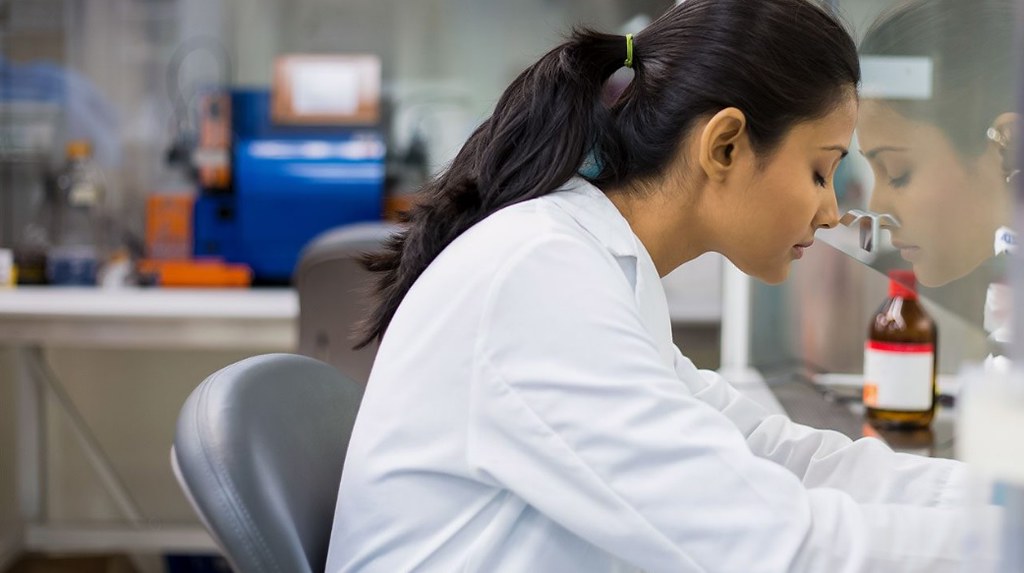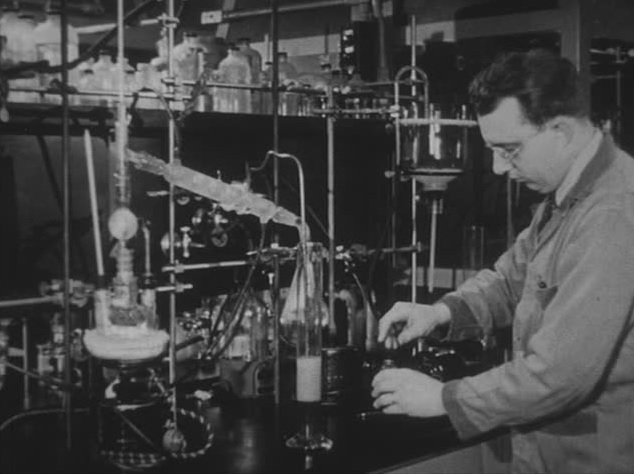Well, it appears that the New Year of 2017 is upon us. Since that is the case, I thought that a look back at the first full year of "Mike Thinks Blog" would be useful to those readers just joining us. The adventure on the blog is multifaceted in theory:
1) Deal with large numbers reported in the popular news which are easily overlooked.
2) Untangle difficult concepts in science which are unfolding as research is being performed.
3) Demystify the life of a scientist.
Pretty simple right?
In the paragraphs below, I discuss how the blog posts on the site over the last year relate to or are categorized under the three categories above. Click on any of the highlighted words (or underlined text) to access the original posts. Enjoy!
2016 Here We Come!
About this time last year (in December), I had just returned from celebrating Christmas with my family. As I mentioned in a recent post on rainfall, I was celebrating Christmas and heard of a large volume which remained in my mind for a few days to simmer. I had been contemplating writing on a blog site -- since the current blog site that I had been writing for was recently shut down.
Anyways, the statistic that I heard was that Lake Tahoe had received a terrible storm which dropped a large amount of snow (great for skiers). The rainfall totaled 65 billion gallons of rainfall? Upon hearing this, I was taken back. In fact, for the remainder of the vacation -- in the back of my mind was the number 65 billion gallons of rain.
While this number stuck in the back of my head, I read in the news that a village in Brazil experienced a large volume of 'mine waste water' from a reservoir and decided to look into the accident. I am always astounded that regulators allow large corporations to put villages or surrounding regions in jeopardy while building up tremendous volumes of waste water. Of course, the result of 'not regulating' properly is floods and contaminated drinking and bathing water.
The total amount of waste water spilled turned out to be 15.9 billion gallons of waste water which is equivalent to 78 Deepwater Horizon Oil spills!!!!!! WOW!!! Looking at the number reported -- 15.9 billion gallons of waste water begs the following question:
How does one caste the enormous number into perspective?
A large part of being a scientist is deconstructing numbers and statements in comparison to what is known about the world (through science). The deconstruction process usually involves 'dimensional analysis'. Dimensional analysis allows us to take a number like 15.9 billion gallons and put that number into perspective. How?
The Deepwater Horizon Oil spill which dumped nearly 210 million gallons of oil into the Gulf of Mexico can serve as a metric by which to compare other large volume spills. A metric serve to put the value or magnitude of a given number into perspective. Of course, one can easily choose a metric which is too large or too small. In that event, performing dimensional analysis with either of these metrics return an answer which is still confusing.
Additionally, ensuring the 'units' of measurement are all uniform in a given analysis is extremely important. In the spring time of this year,
I clarified the need to use proper 'units of measurement's (in a blog post) in carrying out a dimensional analysis problem. These points beg a further question:
Why would we want to understand the enormous numbers reported?
The main reason is to have the ability to understand the magnitude of the volume which is correlated with the tremendous damage that can be done to a geographic area. Over the course of the year, unexpected rainfall has occurred in the following regions which I have written blog posts with dimensional analysis included:(1)
China, (2)
Elliot City, (3)
Huauchinango, (4)
Macedonia, (5)
Louisiana (6)
Haiti (Hurricane Matthew), (7)
East Coast, USA (Hurricane Matthew).
This rainfall series
started off with initial post regarding a few inches of rain from the 65 billion gallon statistic that I heard last year. Although, the tremendous amount of rainfall this year from varying storms is worrisome despite what non-scientists think. Recently, a report of rain in Northern California area stated that
one region received 55 billion gallons over the course of the rain season this year. Just think, these numbers might seem insignificant to you (the reader) had I not carried out dimensional analysis to make the numbers have meaning. This is how the year started off and carried on for natural disasters.
What about man-made disasters?
Man-Made Disasters?
The storm season of 2016 was unprecedented to say the least. Rainfall hit enormous numbers in known and unknown parts of the world. The culprit is still unknown. Science is heavily skewed toward climate change. Although skeptics exist and are in powerful positions. Chances are that the same skeptics are proponents of 'man-made disasters' too -- which 2016 brought on plenty of.
On this blog site, stories started to emerge following the devastating release of huge amounts of methane gas in a storage facility in Southern California. The Aliso Canyon Gas Storage facility with its 114 gas wells serves as the largest reservoir in California. Therefore, when a well was found to be leaking, unknown amounts leaked out -- in the beginning.
I wrote a first blog post when I read about the enormous amount of gas being stored underneath ground -- 87 billion cubic feet of natural gas was stored at the facility. WOW!!
By carrying out dimensional analysis, the amount of 87 billion cubic feet of natural gas amounts to roughly filling 2351 Empire State Buildings or 696 Super Domes. These numbers are hard to grasp. Further, the length of the line that tapped into the well underground was equivalent to stacking 5 Empire State Buildings on top of one another. Oh My. Try to find a leak in that line.
As time moved on -- roughly a month, new figures started to emerge which was cause for further concern. Turns out, that there is an additional 82 billion cubic feet of "cushion gas" down there to provide pressure to extract the gas.
I wrote a blog post that detailed the correspondence between a reporter and myself regarding this "cushion gas". Further, the average daily magnitude of released methane was explored too by myself --
here.
The major take home was that different figures emerged and incomprehensible numbers were thrown around in hope of the public glossing over such a terrible disaster. Luckily, a few advocates have stuck with the pressing issue and the storage facility remains closed until all wells have been inspected.
Moving onto other disasters that were caused by 'man-made' feats to improve our quality of life. Earlier in the year, I was amazed to learn that underneath Los Angeles (California, USA) are nearly 5000 oil wells. Los Angeles was literally built on top of oil --
as I write about here. Of course, the amount of oil produced in Los Angeles on an annual basis is nearly zero compared to the global daily demand of oil -- of which I was surprised to read and write about.
94 million barrels of oil is required on a daily basis to drive our world. This might not seem like a lot in thinking about the daily demand of the entire world.
Although, when you experience the 'fall-out' of such demand, you might think twice.
What do I mean by this?
Earlier this year, I took my wife to a beach (Venice Beach) in California. I grew up here.
I was disappointed to see that the water had been growing tainted with 'tar-balls'. With the Dakota pipeline in the news recently with the Sioux Indian Tribe protesting the expansion, the following questions emerges:
1)
Does Oil Demand Restrict The Amount Of Safety Regulation On Big Oil Companies?
2)
What Technology Is Being Installed By 'Energy Transfer' To Prevent An Oil Spill?
In the future, these will be issues which we need to face as a world.
I offered a few solutions in a blog post about bringing jobs back to America by promoting renewable energy. We will have to wait and see how that plays out with the new President-elect Donald Trump's incoming administration and policy making. During the course of the month of November, I covered science policy issues in the following blog posts:
1)
20 Questions Politicians Answer Regarding Science Issues
2)
READ THIS BEFORE VOTING -- Presidential Science (WORLD) Issues!
3)
What Do The Election Results Have To Do With Veterans Day?
4)
Free Speech Is The Least Of President-Elect Trump's Problems Ahead
The future will be fascinating depending on how the President-elect decides to treat science and fund renewable energy. Especially, with the fact that such a large amount of top CEO's like Bill Gates and Sir Richard Branson are motivating a move toward a renewable energy based market with an environmentally friendlier footprint. This is not to say that our Nation is still not heavily dependent on oil. Our foreign policy is heavily influenced by the dependence on oil.
Over the course of the year, we learned from the popular news that these 'man-made disasters' are not restricted to the United States soil. In fact, there were a number of disasters that were not reported or I could not cover -- yes, I am only one person writing. This does not mean that we as a Nation are not affected nor need to ignore potential threats to us. Furthermore, our Nations foreign policy is affected by disasters.
For instance, earlier this year a news article surfaced which stated that if the Mosul dam in Iraq was taken over by ISIS, a flood could occur which would drown the city of Mosul in 65 feet (depth) of water.
The result of my calculations was that 65 feet would be the depth if the dam was filled only 66%. Therefore, if the Mosul dam is filled higher, then more damage would result. Just this week, another story about the dangers of the Mosul dam appeared in an article in 'The New Yorker' titled "
A Bigger Problem Than ISIS?". As you can see, understanding the magnitude of the problem can help you understand the problem at hand.
Furthermore, the amount of oil that is underneath the ground in countries like Iraq along with our presence (military and civilian) reinforces that dependence. According to an assessment on one of my blog's is that the amount of oil underneath Iraq is around 140 billion barrels --
which is enough to meet the global daily oil demand for 4 years!!!
That is it - 4 years worth?
What happens after that?
The answer should involve building upon renewable energy technologies and investing in clean energy. This is where science and technology companies can step in and offer help.
Scientists Are Human?
Yes, believe it or not, scientists are human. One motivation of this blog is to demystify science/life of a scientist. In order to move toward more highly skilled labor jobs, science and technology industries and universities will have to step up and highlight the importance of Science, Technology, Engineering, and Mathematics (STEM). Furthermore, we must motivate minorities and women to engage in pursuing science degrees. Science knows no race or gender or wealth disparity. Any bright mind can contribute to science. In order to accomplish this, the life of scientists must be demystified -- i.e., made human.
Early in the year, I posted a blog post from 2014. The topic was the lack of elevation of STEM.
In the particular case, the White House Science day celebration story ran on page A14. Why not put the story front page? If we want people to pay attention to the importance of science, then the story and importance of the story should be front page with a huge picture. Science is actually fun. Despite the popular images on television which are fictional -- of a scientist in her/his lab researching all alone and serious. At the same time, science is competitive and can seem at times 'cut throat' in nature.
This raises another desperate need in science. To bring back the joy and fun in science. In January, I got a chance to be a science judge at an elementary school. I was quite surprised that the level of sophistication of the projects was matched with an adult. We need to remember to let children be children and perform science projects that match their skill level --
which I wrote about here. Subjecting children to science projects that are more difficult than their skill level could result in the child either not being interested in science or believing that they are performing science with their parents -- i.e., through someone else's action not your own.
The importance of working hard by solving problems in science cannot be stressed. In chemistry, solving problems is critical to developing reasoning that is needed to grasp abstract concepts. Part of this work might be done in isolation. Other parts might be done in a group (tutor or group) study. The ironic aspect of science is that hard work and reasoning will get you 99% there. Being able to perform dimensional analysis is critical to casting large numbers into perspective.
I wrote a blog about estimating the amount of paint required to cover a movie screen. One can easily extend this analysis to a real situation -- painting your house. Further, working to educate others is critical too. Helping other students reinforces the science analysis to a large degree --
which I write about here.
Blogging on this site has given me the chance to show others how to set up an approximation to solve a problem. The answer could be far off, but the methodology is critical toward reaching a better solution which approximates the true situation. Even if you (the reader) do not go into science as a profession, the opportunity still exists that a person can grasp a great part of science and contribute to science as a citizen --
citizen scientist which I highlight here.
As a scientist, I have my own reasons why science has captured my interest. So much of an interest, that I chose to have a professional career in science.
As I mentioned in a previous blog, I was a scientist in the making from around the high school time frame. I believe that every person interested in chemistry (or science more broadly) should pursue a career in it -- regardless of obstacles.
If you identify with the type of thinking displayed in this blog post, then definitely pursue chemistry.
Do you think like a chemist? Cook some spaghetti and tell me if so (another blog post).
Scientists play a crucial role in society. Scientist create drugs for the treatment and prevention of diseases. Your taxpayer money funds research and development in a vast array of areas of science. Science plays a critical role in advancing technology. Just look at the works of Elon Musk and his pursuit to space from a commercial standpoint. The results of such pursuits trickle down into autonomous vehicles -- which I highlight here. Further, the CEO's of these large corporations have the ability to move science forward by providing 'private funding' --
which is very greatly needed and discussed here.
The most important role that scientists play in society is to motivate others through energizing the public about science.
In a recent blog post, I discuss the need for outreach by scientists is critical. Get out of the lab and teach others about what you are doing and why your research is important. Explain and demystify science while encouraging politicians and the public at large the need for research into climate change, drug research, space research, along with other areas. Understanding science is critical toward conducting ourselves appropriately toward saving the planet (environment). Having a public that is educated in science can help the public understand the greatest threats to our existence.
For instance, earlier this year
I wrote a blog post about the nuclear weapon testing of North Korea. These tests have real implications toward our destruction. I used dimensional analysis to put the enormous amount of energy into perspective.
A couple of months later, I used a different parameter (force) to put the force of a nuclear weapon into perspective. Recent calls by an incoming administration for an upgraded nuclear arsenal are feared (and rightly so) for good reason. Nuclear weapons contain an enormous amount of energy which is nothing to mess around with. Read the blogs to see if I am joking around.
That is one end of the extreme of science research. The other is concerned with small end of the spectrum.
Viewing the world that is invisible to the naked eye is truly amazing and worth reading about. In the middle of the spectrum lie issues that are more easily graspable. For instance, living in California, each resident is aware of an ongoing 'drought'. This begs the questions:
1)
Where does the water come from?
2)
How much water do California residents use?
Reading the two blogs highlighted in the above questions definitely sheds light onto the ongoing water problem. Readers of this blog will know that
the same amount of water used by the average Bel Air resident is equivalent to the amount of water needed to nourish 1,600 cattle. Dimensional analysis is a powerful tool. This is just one of the many examples on this site.
Science can further be of assistance in demystifying health issues too -- as most of us know. Two big issues that plague the world are diseases that can be prevented and treated with medicine available on the market. And secondly, diseases that arise out of bad habits like smoking, drinking, obesity, etc.
I recently wrote about the cost of prescription medications and how the cost could be decreased. The process needs to be optimized in order to reduce overall cost.
Regarding lifestyle choices like smoking and drinking along with obesity. Science can reveal a tremendous amount. Although the research results are often controversial in the public eye. Take for instance, the continuing rise of 'electronic cigarettes' or 'e-cigarettes.' Many proponents of the new technology are pushing the product as a new method by which to stop traditional smoking of combustible paper and tobacco. Science has a tremendous amount to say already about the hidden dangers.
First, trading off the combustion of paper and tobacco for the 'vaporization of liquid tobacco' might seem less troublesome on the body. Although, as we have seen in the news over the last few years, the rise in use of e-liquids on the market has presented difficulties. I highlight some associated with the
unknown quantities of tobacco contained in a jar of e-liquid here. This post along with a
different post discussing the dangers associated with the mechanical operation of the e-cigarette device were reprints from a previous blog site that I blogged on. At this point, you might be tempted to think that science is out of date on the issue of e-cigarettes. Not so. Stay tuned in a future blog on the chemistry of the smoke based on recent research that has just emerged. e-cigarettes are dangerous just like any tobacco product. The question is the degree of the danger. Science will have more to say in the near future. Stay tuned!
Science is great, yet requires dedication and hard work to achieve. A large amount of people with whom I speak on a daily basis have wild ideas about what scientists do and think. One overarching motivation of this blog is to demystify this idea. Here are a few more blog posts throughout the year that caught my attention to write about:
1)
Does a Golf Ball have more than one shape (round)?
2)
How Many Smells Can Humans Differentiate Between?
3)
What do a coffee coupon and an outfit have in common? A Feeling!
4)
Who Sells Sea Water? Who Buys Sea Water?
5)
Where Is That UPS Package?
6)
Humans Affinity For Junk Food Rubs Off On Bird Population
7)
Active Transportation Implies That Every Bicycle Trip Is Considered "Commuting"!
8)
Gender Neutral Restrooms Should Not Include "Urinals"
9)
Are The Elements Hydrogen And Helium "Of This World"?
10)
Why Do People Fly Drones Into "Restricted Air Space"?
11)
What Is Holding You Back From Achieving Your Potential?
12)
How Much Weight Can 54 Billion Cubic Feet Of Helium Lift?
13)
Can A Broken Sewer Line 20 Miles Away Close The Beach?
14)
'Wayfinding' Signs Are For Everyone Not Just Tourists!
15)
How Many Square Feet Would Be Required To House All Homeless Residents in Los Angeles County?
16)
After Reading This, You Might Want To Drink Breast Milk
17)
How Does The Weight Of A Floating Oil Rig Compare To The Eiffel Tower?
18)
Technology Allows Chemists To View Chemical Reactions
19)
Humor Series #1: We Live In A World Where ...
20)
Why Is There Another Oil Spill?
21)
An Alternative Way To Tour A City — By Your Nose!
22)
How Deep Is One Of The World's Largest Wave Tanks?
23)
Unraveling The Resistance Of Antibiotics!
24)
What Is The World Going To Be Like With Autonomous (Self Driving) Cars?
25)
Using Scavenger Hunts To Solve Real World Problems?
26)
Why Did Pfc. Chelsea Manning Divulge Classified Information?
27)
What Happened To Being Yourself Instead Of Ivanka Trump?
28)
Why Doesn't Pre-Regulation Of Consumer Products Exist?
29)
Is Disease Or Treatment Different In Women?
30)
The NFL Is Collecting Big Data?
31)
How Much Would The Sun Weigh If Filled With Water?
32)
International Students Make American Science Stronger
33)
How Much Water Is 55 Billion Gallons Of Rainfall?
34)
How Do LED Christmas Lights Work?
35)
Own Your Failure, Do Not Blame Your Teachers
The blog posts just numbered are posts that were based on articles that stood out and did not necessarily have any outrageous number or statistic cited. Science is a wide subject that touches every aspect of our lives. If you do not believe me, read (or click) on any of the underlined or hyperlinked text above and read to find out if I am wrong.
Conclusion...
The year of 2016 has been a very active year for scientists who write about current issues. There have been too many disasters that have occurred. In the year to come, President-elect will make decisions that have a global impact. I will try to highlight the science behind such decisions. Of course, I cannot get to every article or issue. Given the news already, there is inevitably going to be news worthy of analyzing by the method of dimensional analysis to come.
Remember that the overarching theme of this blog is to write through the eyes of a scientist. If at any time, you have a topic that you would like me to explore, just write the topic in the comment section. Science is truly amazing and worth exploring. I hope that I have given you a rough idea about the profession of a scientist. Additionally, I hope that by reading the blog posts on this site, you (the reader) has gained a little more insight into the importance of science on society and the world at large.
I will be on vacation the next week. I look forward to returning in the new year (late next week) to release more interesting articles.
Until next time, Have a great day and Happy New Year!!!!!



